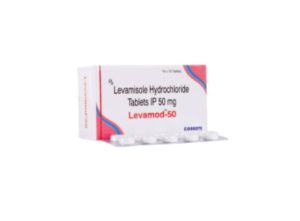
Pefloxacin is a fluoroquinolone antibiotic used to treat various bacterial infections. Here’s a detailed summary:
Description:
Pefloxacin is a synthetic broad-spectrum antibiotic that inhibits bacterial DNA gyrase and topoisomerase IV, which are crucial for bacterial DNA replication and repair. It is effective against a wide range of gram-negative and some gram-positive bacteria.
Brand Names:
- Peflacine
- Pefloquin
- Pefloxin
- Pefloxa
- Peflozine (varies by country)
Available Forms and Strengths:
- Tablets: 400 mg
- Injection: 200 mg/100 ml (as a solution) (availability may vary by country)
Uses:
- Urinary Tract Infections (UTIs): Effective for both uncomplicated and complicated UTIs.
- Respiratory Tract Infections: Used for infections such as pneumonia and bronchitis.
- Skin and Soft Tissue Infections: Treats infections like cellulitis and abscesses.
- Gastrointestinal Infections: Used for certain bacterial infections affecting the digestive system.
- Bone and Joint Infections: Helps treat infections in bones and joints.
- Intra-abdominal Infections: Effective for infections within the abdominal cavity.
Side Effects:
- Common: Nausea, diarrhea, headache, dizziness, abdominal pain.
- Serious: Tendon rupture, peripheral neuropathy, seizures, QT interval prolongation, hypersensitivity reactions (e.g., rash, anaphylaxis).
- Other: Photosensitivity, joint pain, tendinitis, confusion, and hallucinations.
Dosage:
- Adults: Typically 400 mg twice daily for 7 to 14 days, depending on the type and severity of the infection. Dosage may vary based on patient-specific conditions and the infection being treated.
Contraindications:
- Hypersensitivity: Known allergy to pefloxacin or other fluoroquinolones.
- Tendon Disorders: History of tendon rupture or tendon disorders related to fluoroquinolone use.
- Central Nervous System Disorders: Caution required in patients with a history of seizures or other CNS disorders.
Warnings:
- Tendon Risk: Increased risk of tendon rupture, especially in older adults and those on concurrent corticosteroids.
- Central Nervous System Effects: May cause seizures, increased intracranial pressure, and other CNS effects.
- Cardiac Effects: Risk of QT interval prolongation, potentially leading to serious heart rhythm disturbances.
- Clostridium difficile: Risk of severe Clostridium difficile-associated diarrhea, which can be severe and potentially life-threatening.
Consult a healthcare provider for personalized medical advice, including appropriate dosage and potential drug interactions.







